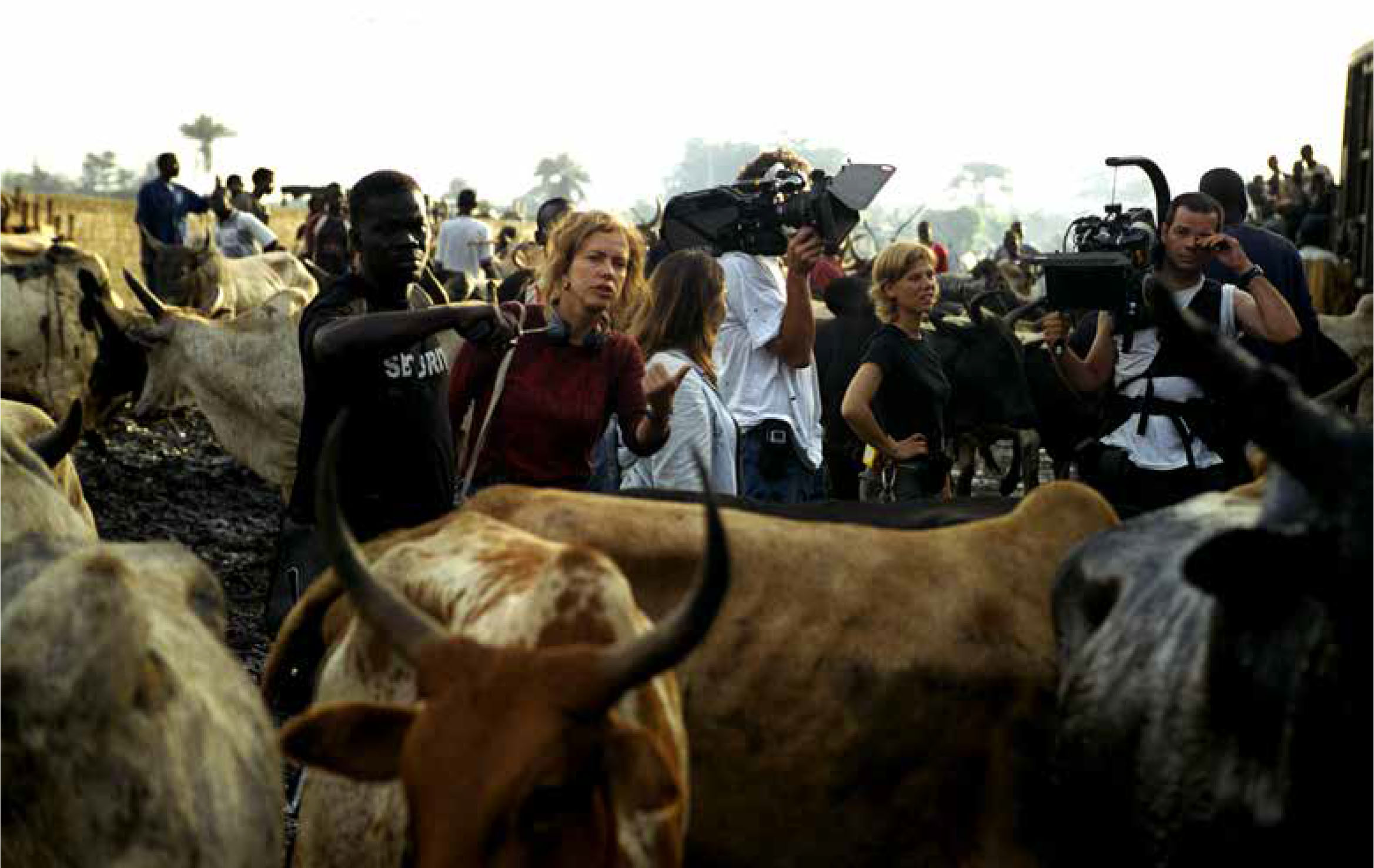
CINEMA
FILM ECONOMICS
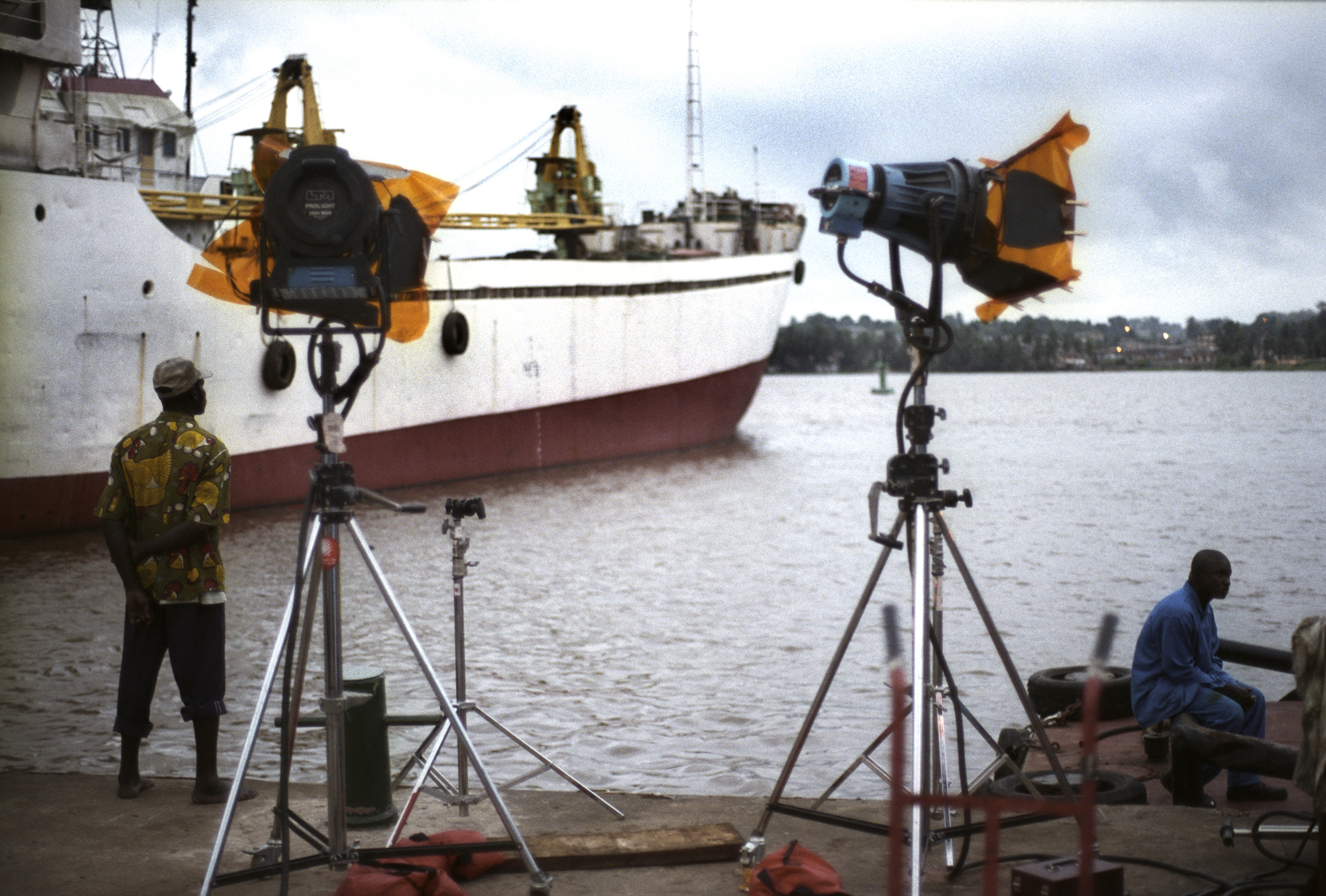
Après l’océan – Filming in the port @tomaBaqueni
EARLY FILMING
Before the 1980s, the CNRS provided all the funding for research, including films. This was Jean Rouch’s big chance. Likewise for the anthropologists who later went out into the field with their cameras. The situation changed with the general disengagement of public authorities. Researchers were pushed towards the market and those who made films had to find co-productions, whether or not these were set up with the CNRS.
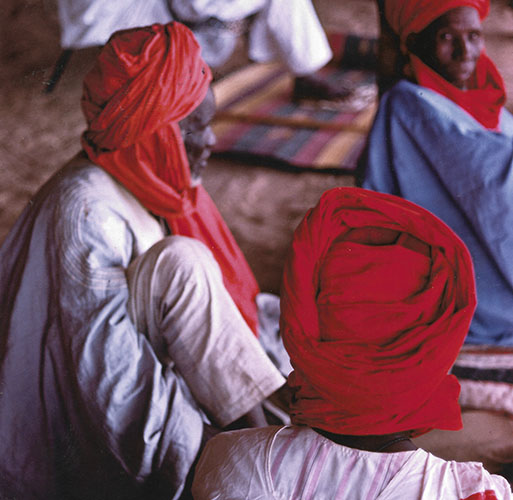
Les Temps du pouvoir – Royal guards
My saving grace was the birth of the TV channel La Sept, now Arte. They bought Les Temps du pouvoir, financed by the CNRS, and went straight into co-production on the next film, Tidjane ou les voies d’Allah. Since then, Arte has accompanied most of my films.
Thierry Garrel, director of the documentary unit, successfully promoted the revival of a less factual, more personal approach to filmmaking: “I had only one guideline: “to make independent television”, he proclaimed. He urged researchers to move away from the “illustrated film” based on Durkheimian postures, fit for in-house seminars!
I saw an economic opportunity emerging between my films based on my ethnological research and movie production, particularly with the sudden transition to the major international festivals: Berlinale, Locarno, Rotterdam, Venice, Edinburgh, London…
These feature films took an average of three or four years to make, and I wrote them up in my annual reports to the CNRS as ‘publications’. To this I added my thoughts on the links between the social sciences and cinema, which became the subject of my lectures at the EHESS. But it wasn’t all plain sailing, with the Peer Commission there to judge us. Which remained conservative for a long time. Today, the CNRS competitive exam includes promoting innovative ways of writing.
FEATURE FILMS
TV films or Films for cinema. This is yet another administrative division that has major repercussions on the ways films are produced, financed and publicised. There is neither the same freedom, nor necessarily the same festivals, nor the same media. A split that is forever irreconcilable in France, which has built its prestige on box-office releases.
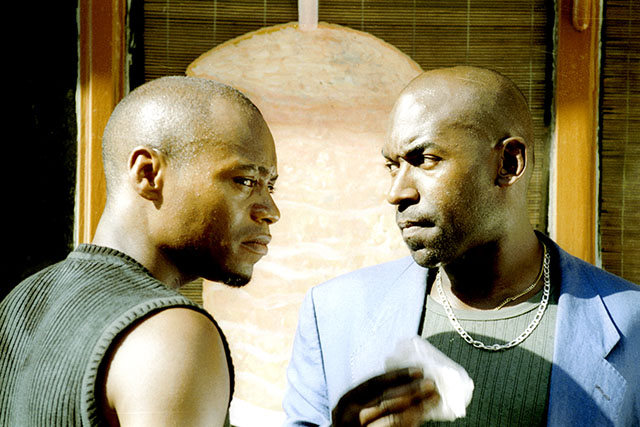
This cinema economy in West African countries – at the time when cinemas existed – meant that they could immediately benefit from the cinematographic relationship. An appearance on television in Mali, Côte d’Ivoire or Burkina Faso would never have created the same effect with a rave press.
Bronx Barbès broke Titanic’s records in paid cinemas in Côte d’Ivoire. This continued in all French-speaking countries. The figures reveal the existence of a popular audience, and are a wake-up call for culturalists of all persuasions who believe that cultures should be sealed off from one another. No one in these countries would pay for a ticket for a French film – reputed to be boring – if they couldn’t identify with it. Thousands of Africans responded with queues so long that some cinemas in small towns decided to add midnight screenings.
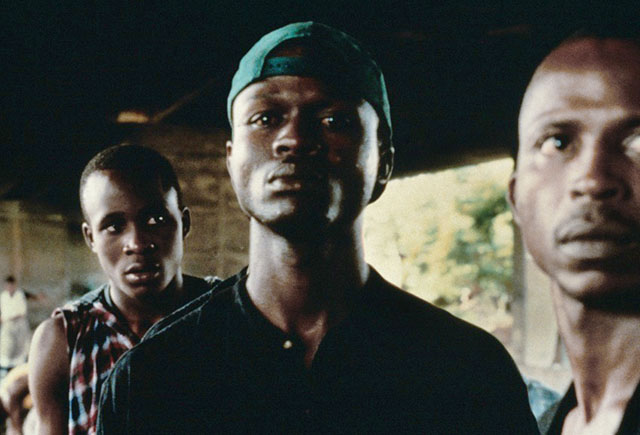
Bronx Barbès – Tarek Aziz, Toussaint, Nixon
[Jimmy Danger, Anthony Koulhei, Loss Ousseini]
In France, the Locarno prize didn’t draw the crowds to the cinemas, but the film did stir up the press, who were discovering an urban, violent Africa, with its hard-hitting street talk. It was a departure from “calabash movies” labelled as “African Films . This vein, born in Burkina Faso, featured village stories, sometimes in the vernacular but also in a calm, grammatically correct French. It was as if African filmmakers needed to conform to “proper language”, which I obviously had nothing to do with. Above all, I was able to hear the poetry of ‘nouchi’, Ivorian street language, a ‘quirky’ French that delighted me as a French woman and which for the first time became the language of dialogue in feature films, such as Après l’océan. Other African films followed.
